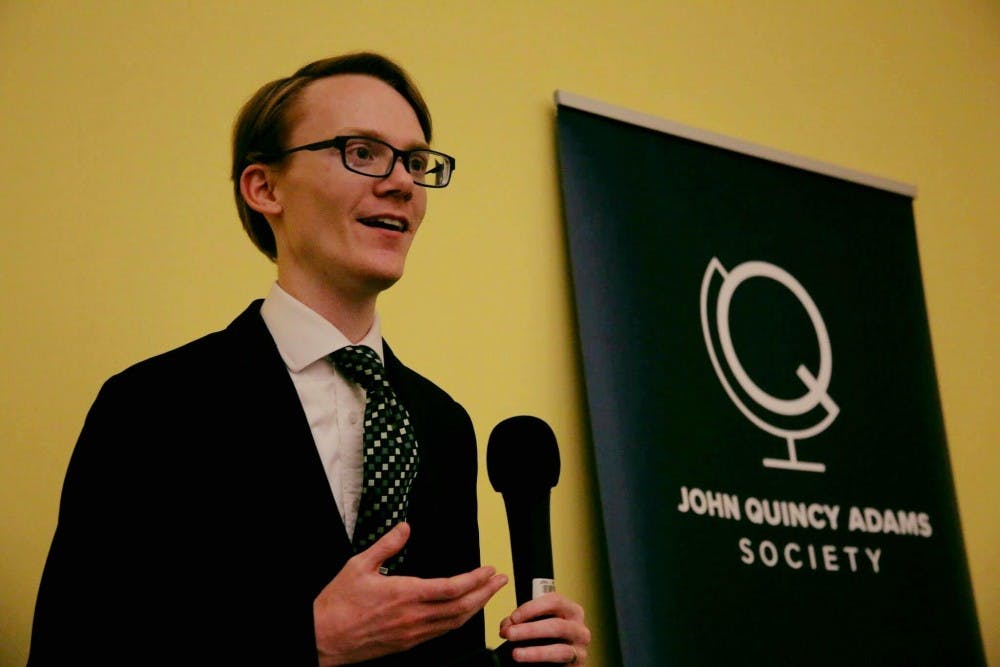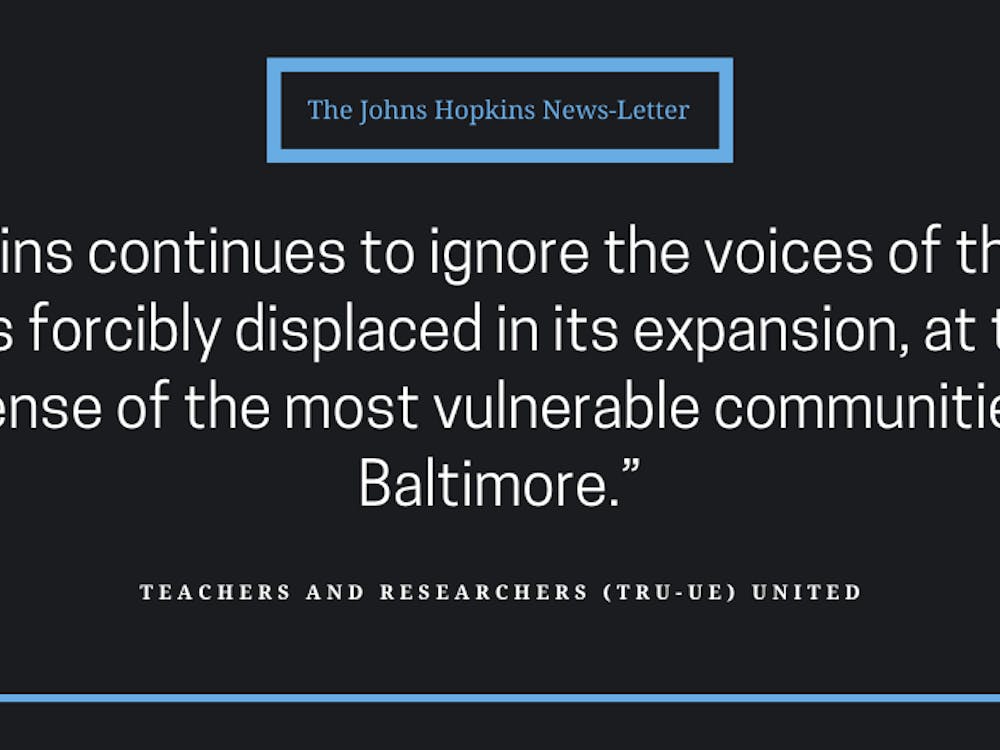The Hopkins chapter of the John Quincy Adams Society (JQAS), a nonpartisan international politics student group, hosted the Society’s Executive Director John Allen Gay at its “Messed Media” event on Dec. 1. JQAS also announced that they will be launching a new publication, Realist Review.
Gay was the former managing editor of The National Interest, a foreign affairs magazine.
In his speech, Gay discussed how JQAS and Realist Review would help alleviate problems he identifies in the media today.
“I wanted to set the context for why this publication and the Society is necessary,” Gay said.
Gay claimed that the press should act to preserve democracy by challenging opinions but believes that it has failed in doing so.
He blamed most of the media’s problems on a decline in ad revenue, which he said has facilitated a lack of credibility. According to Gay, the rise of social media has cut into the media’s ability to generate revenue, so news quality has declined.
“What drives engagement on social media also affects the media and what it produces,” he said.
Gay also discussed the quality of information that consumers encounter on social media. Today, algorithms are designed so that people are more likely to access articles that align with their political views. He also questioned the ability of consumers to separate important news from clickbait.
“You need people to tell you what’s important,” Gay said.
According to Gay, editors of newspapers used to serve this purpose. However, social media and algorithms on Facebook and Twitter have supplanted them.
“In a way, ‘fake news’ was much more of a symptom of the challenges in the media environment than it was the disease. All that ties back to the ad crunch,” he said.
He criticized the decline of foreign policy specialists in news organizations, saying that news organizations today rely too heavily on government sources when they need to understand foreign conflicts and situations. As a result, much of today’s foreign affairs coverage does not act as a check on government.
As an example, Gay discussed coverage of the humanitarian crisis in Yemen. He said that instead of critically covering the affair, journalists follow the government’s narrative.
“It creates a concern that reporters could be used as mouthpieces of those in power,” he said.
In a follow-up interview, Gay clarified that he does not believe that journalists have a responsibility to uphold international law. Rather, he thinks that the media does not inform its readers of the full implications of the United State’s actions.
Gay criticized the response of several prominent figures in the media such as Fareed Zakaria, a CNN host, and Nicholas Kristof, an op-ed columnist for The New York Times. He feels that the way they cover events reflects the bias of the media.
Gay also asserted that the higher ratio of public relations professionals to journalism jobs contributes to the public’s distrust. He believes that the solution to some of the media’s problems is to increase the number of journalists by encouraging everyone to get involved.
Freshman Lauren Paulet agreed with many of Gay’s points. She believes that people need to be more careful about content they consume on social media.
“I think that he’s right that people need to be more careful and vigilant,” Paulet said.
Freshman Vance Wood, however, felt that Gay contradicted himself multiple times. Wood said that the event will not have an effect on how he consumes media.
“At first his credibility seemed strong, but then it declined until I did not believe a word he said anymore,” Wood said.
Junior Dimitri Simes, lead officer of the Hopkins chapter of JQAS, reiterated the group’s goals.
“We want to see American foreign policy shift away from confrontation and endless war and towards diplomacy and cooperation,” Simes said.























Please note All comments are eligible for publication in The News-Letter.